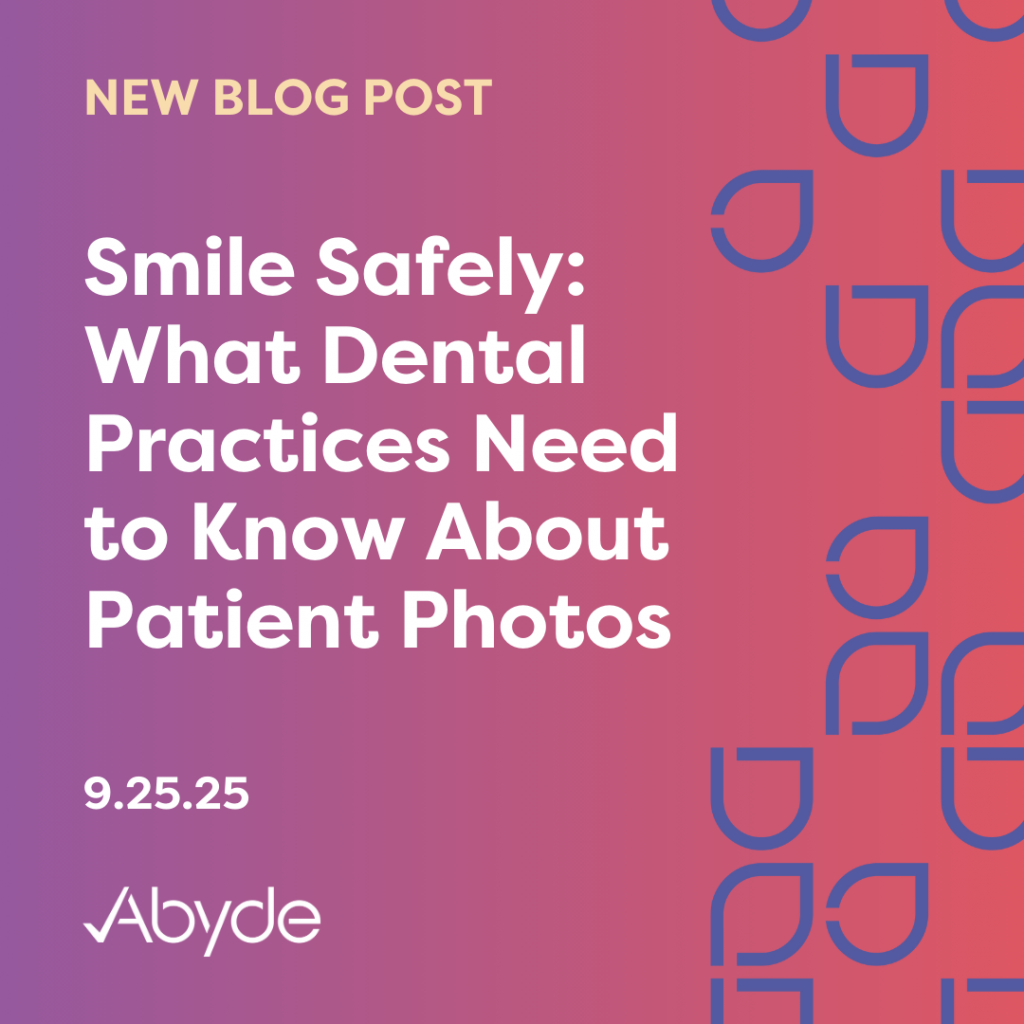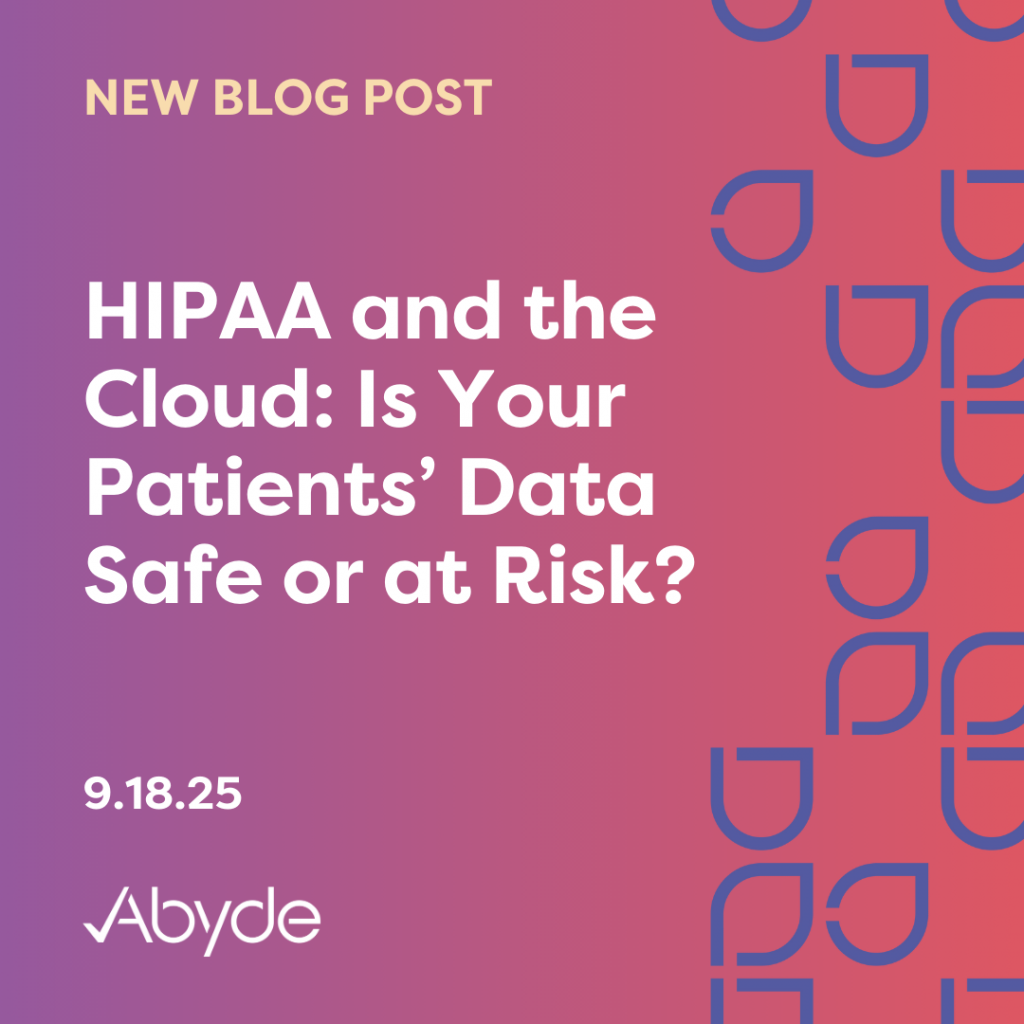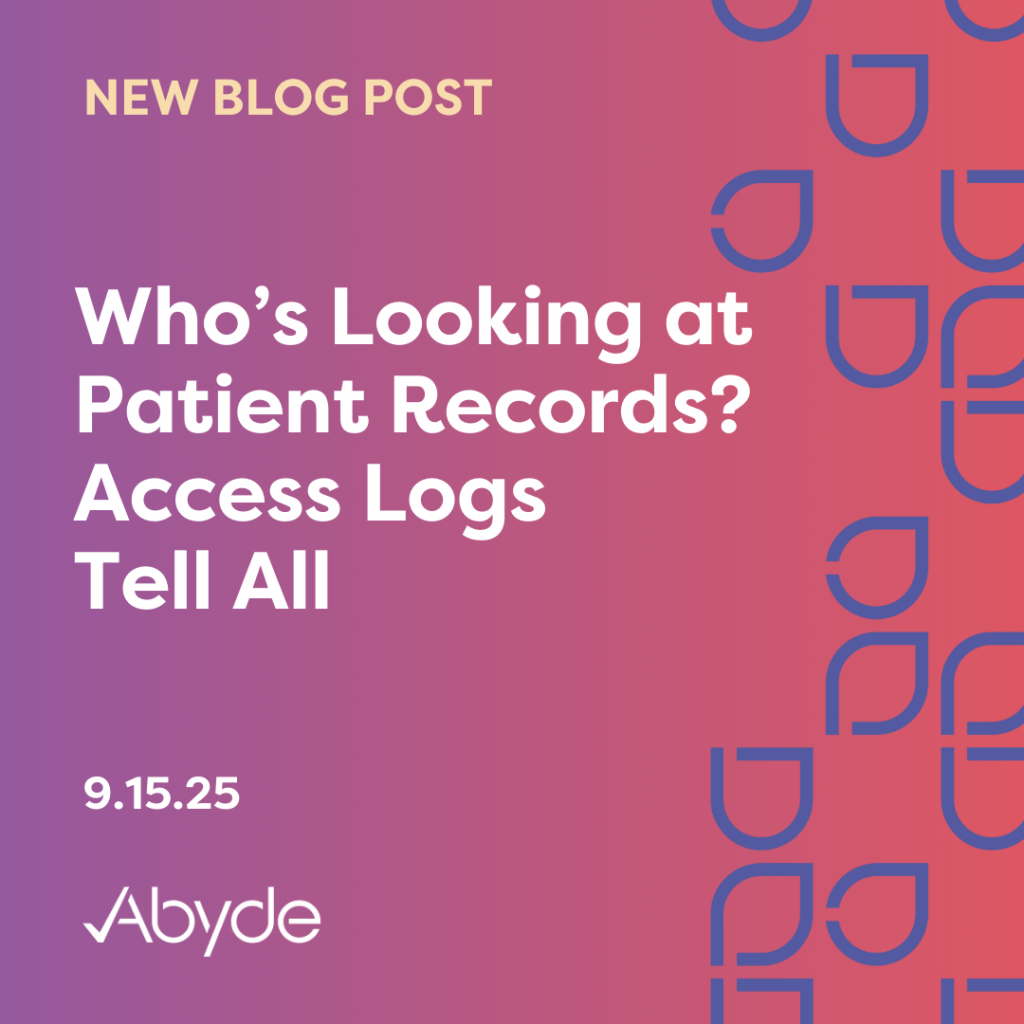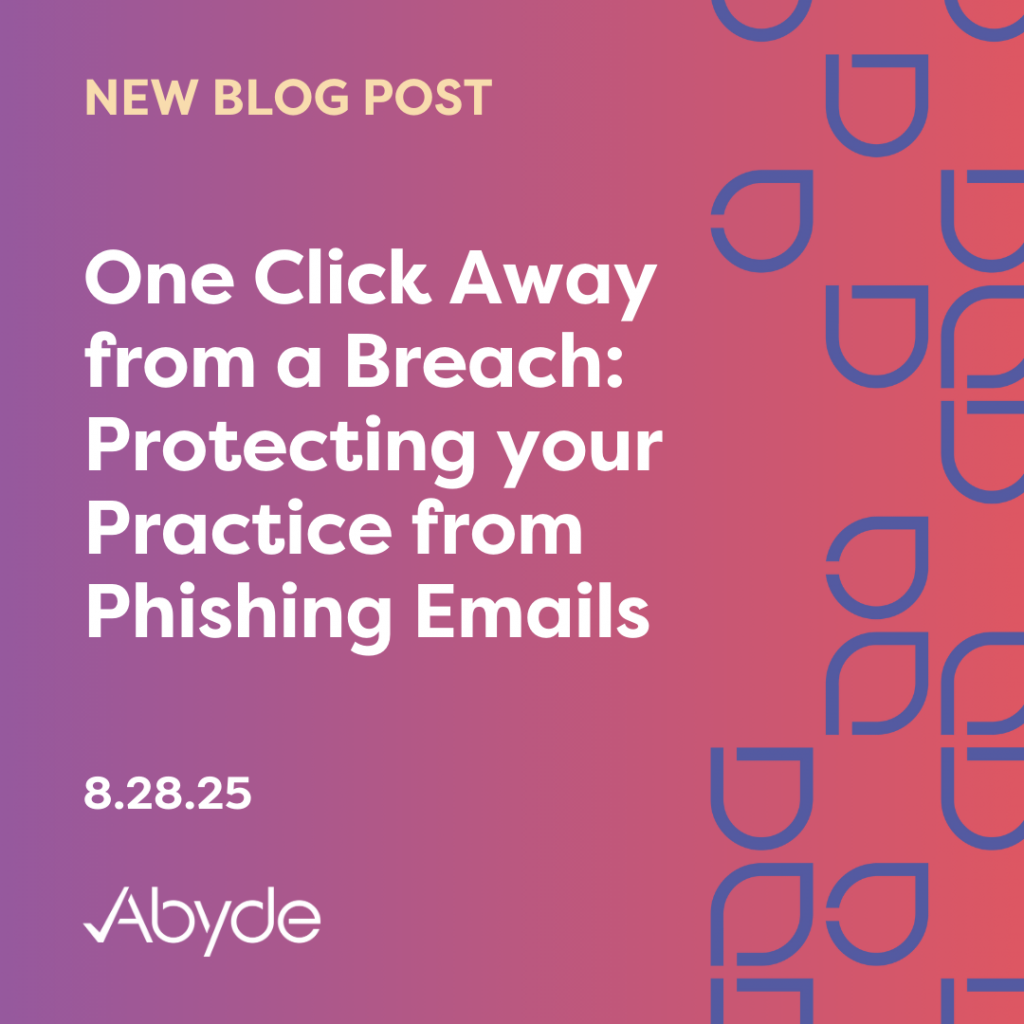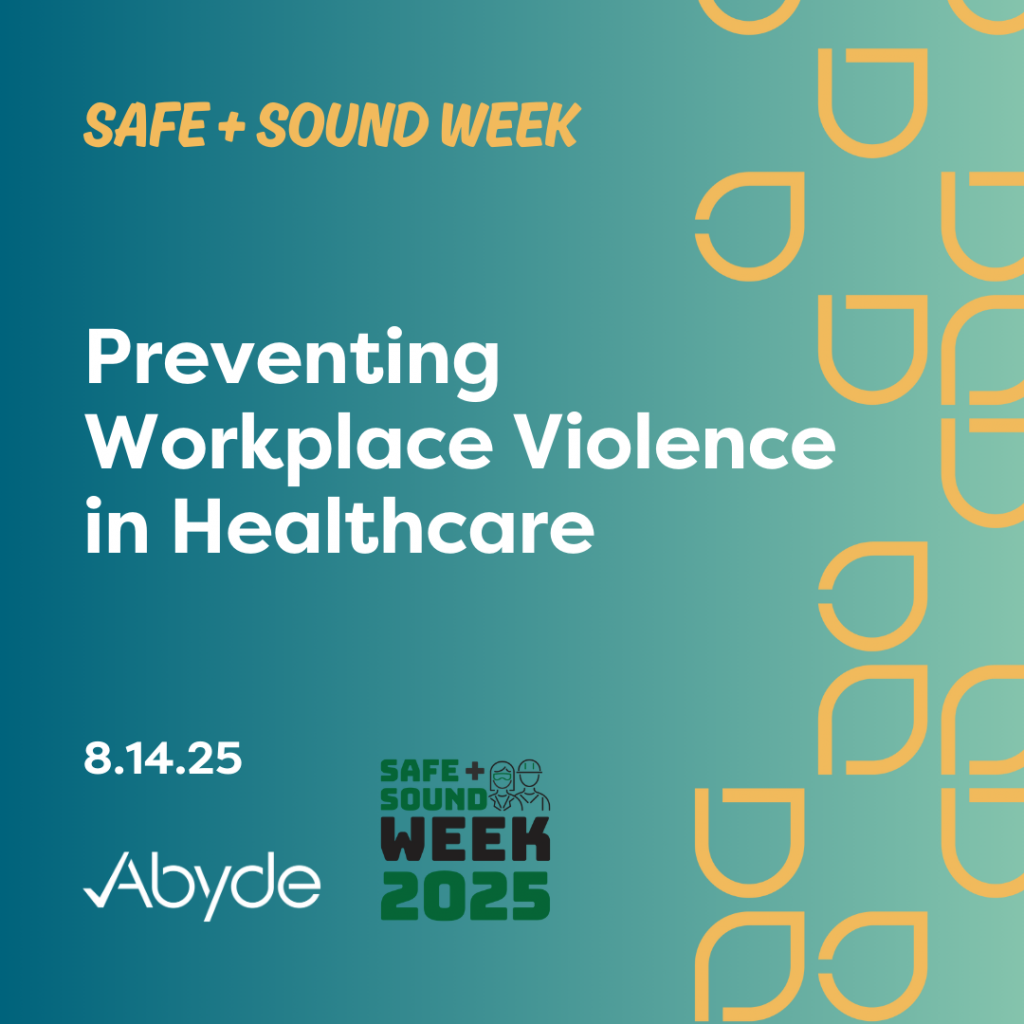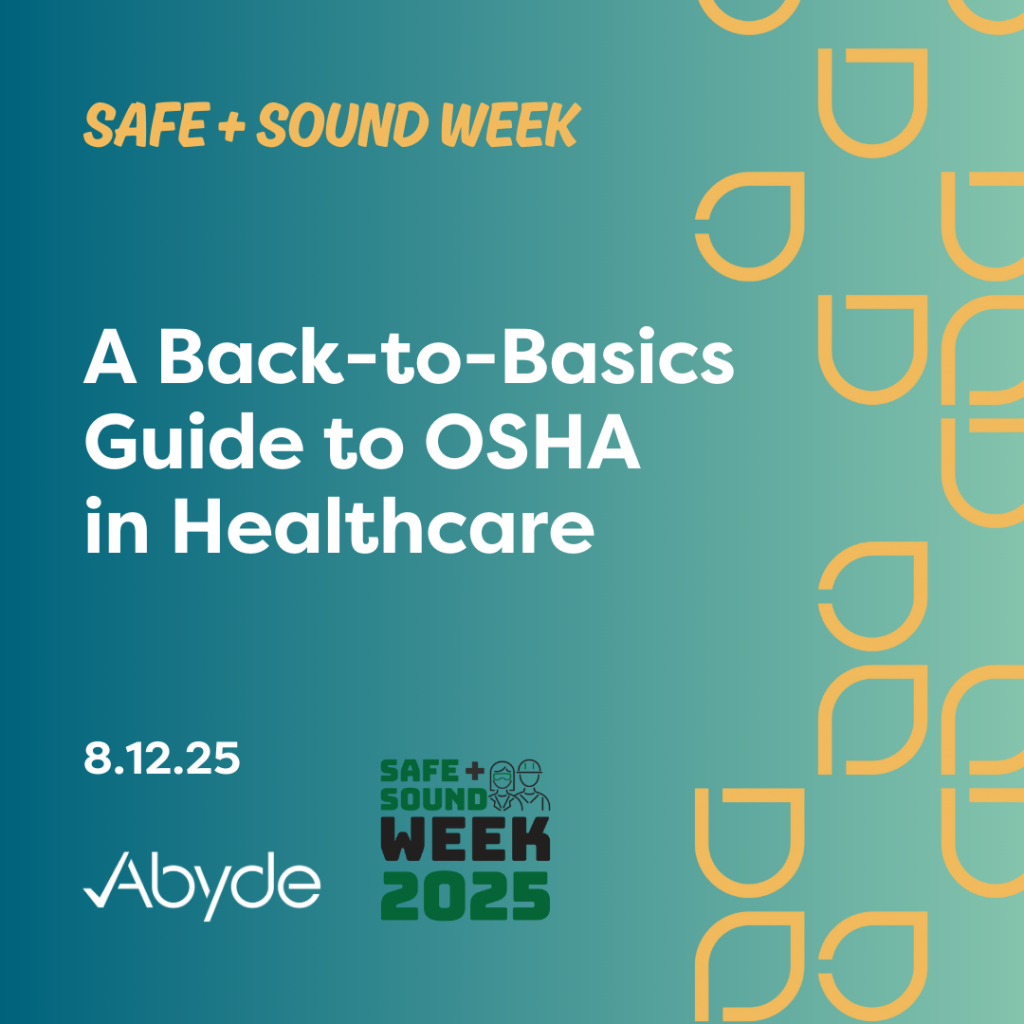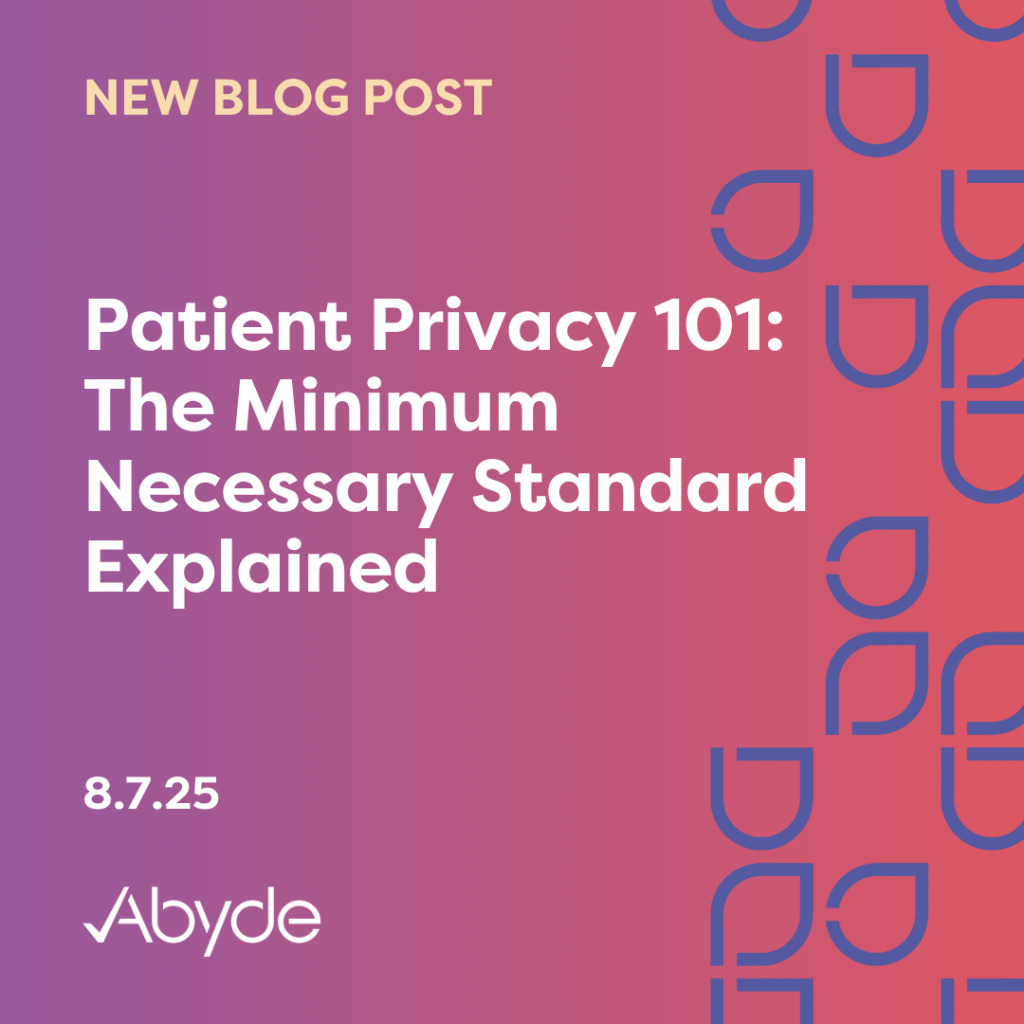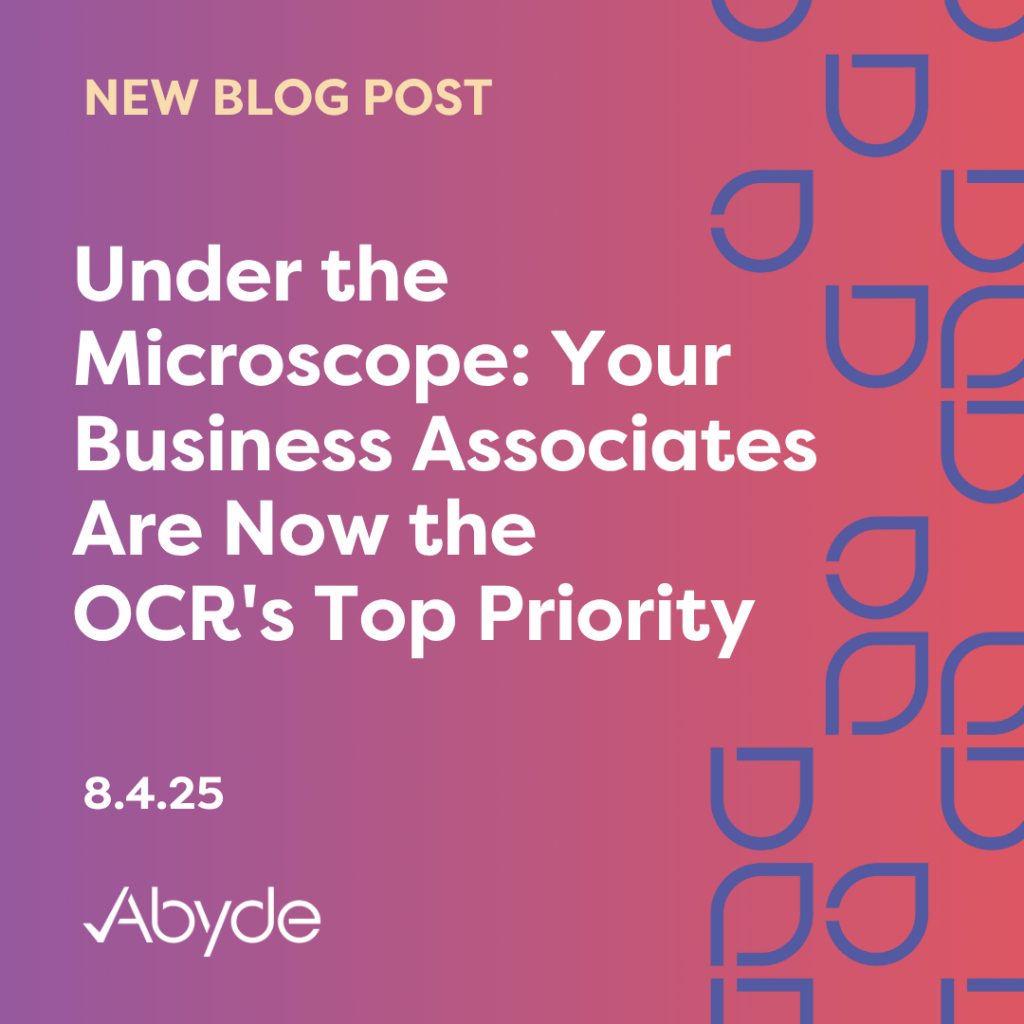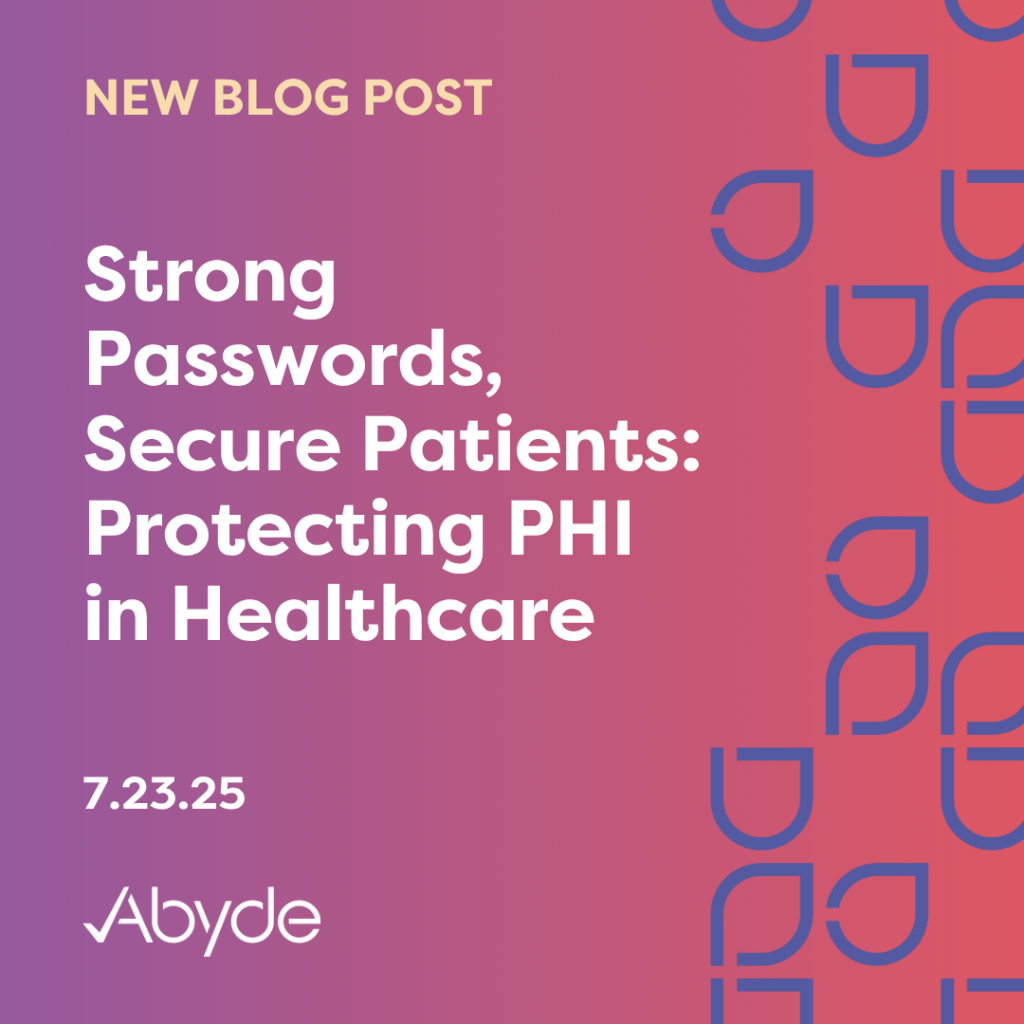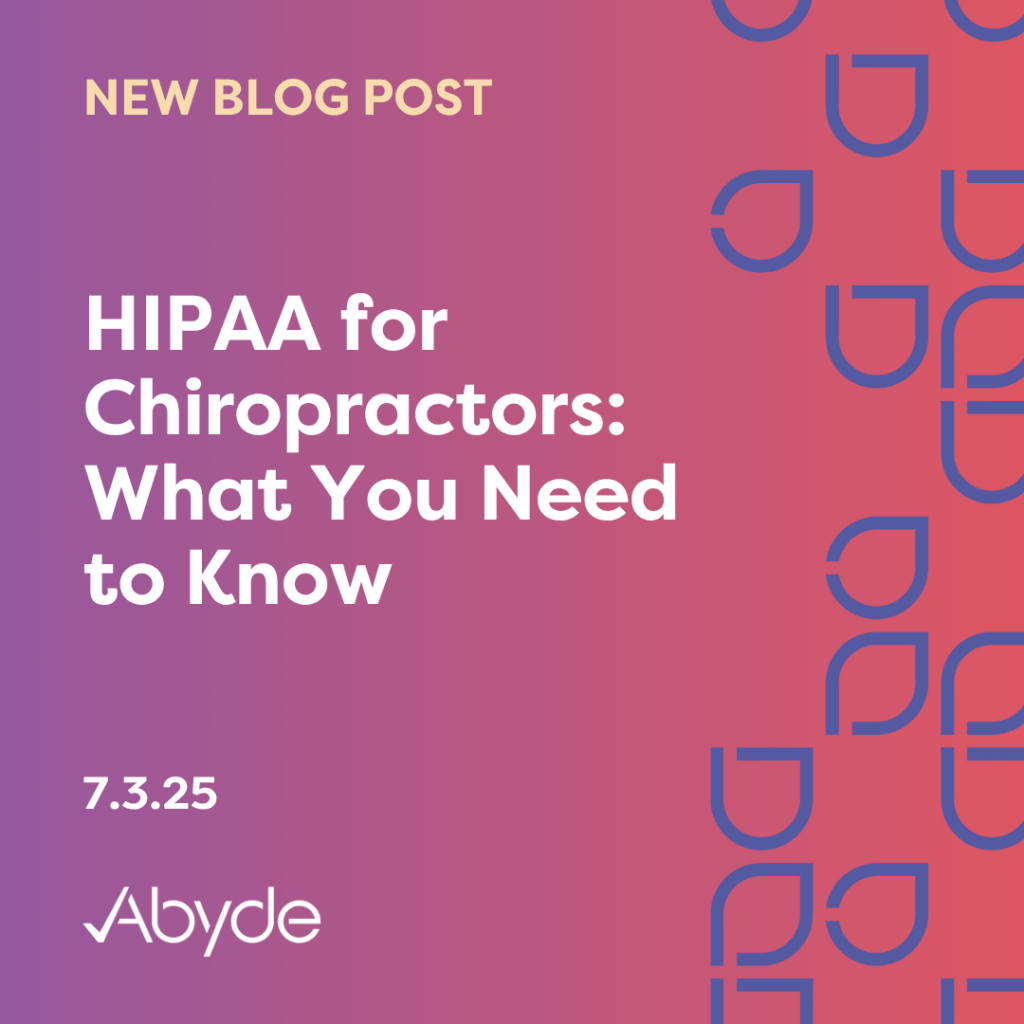September 25, 2025 Smile! Members of your dental practice look at countless images of your patients’ pearly whites daily. However, it can be a major HIPAA violation if your practice doesn’t handle these images carefully. While X-rays of a patient seem anonymous, X-rays and patient medical imaging are considered Protected Health Information (PHI). PHI is health data that can easily be linked to an individual patient. In fact, X-rays also usually include further information, including a patient’s full name and birthday, to ensure they are appropriately assigned and shared with the right patient. The same goes for images of patients’ teeth taken with a traditional camera. HIPAA is about keeping patient information safe, protecting healthcare data, and holding everyone accountable. So, your practice’s job is to keep patient images from curious eyes peeking where they shouldn’t. No Peeking! When handling X-rays and other forms of dental photography, ensure that role-based permissions are correctly assigned. In other words, ensure that whoever has access to these images truly needs access. For example, your receptionist most likely doesn’t need access to a patient’s X-rays, but your head dentist would. Your practice must assign these roles to keep patient data safe and terminate any access once an employee leaves or roles change. A recent HIPAA fine highlights the importance of this, with an $800,000 fine after one patient became aware of improper staff access. Your practice should also routinely monitor access to PHI, ensuring that a) the viewer can view specific patient images and b) it makes sense when and how long they review PHI. For example, your practice’s billing staff doesn’t need to look at a patient’s health records at 3 a.m. Noticing odd access to PHI can let your practice catch issues quickly, like hackers. Smile for the Camera (and get an Autograph!) While it’s vital to keep patients’ medical images, such as X-rays and traditional photos, under lock and key, with the right documentation, you can share these images publicly. Let’s say your practice wants to share a patient’s orthodontic journey with braces on social media with a before-and-after post. Before posting anything, make sure your patient signs a media consent form. These forms should be thorough and documented by your practice. A patient must be able to revoke consent easily at any time. While you have this consent, keeping any images as anonymous as possible is still best practice. You shouldn’t be tagging your patients in social media posts! Smile with Compliance Confidence As they say, a picture is worth a thousand words, and in healthcare, those words are PHI that must stay protected. Dental images play a key role in diagnosing and treating patients, which is why your practice needs to keep this form of PHI secure. With the right compliance solution, your practice can simplify HIPAA by managing everything in one centralized hub. Important documents, like media consent forms, are always easy to access. Connect with a HIPAA expert today to learn how to streamline compliance.
HIPAA and the Cloud: Is Your Patients’ Data Safe or at Risk?
September 18, 2025 Sure, your dog pics and selfies are safe in the cloud… but what about your patients’ data? When technology advances, your practice evolves too. As a healthcare provider, your job is to keep your patients and their data safe. The Health Insurance Portability and Accountability Act (HIPAA) covers protecting this data, especially how it is stored. For example, what if a bad storm floods your practice and ruins an internal server? With cloud storage, this isn’t an issue. Cloud storage is hosted elsewhere and accessed through an internet connection, keeping your practice’s Protected Health Information (PHI) safe. Cloud storage and computing are encouraged, but it’s up to your practice to utilize them compliantly. Best Tips for Using Cloud Storage It’s time to do research before working with any cloud service provider. Some good questions to ask include: Does this organization highlight its HIPAA policy on its site? Is it clear what safeguards they have in place to protect your data? Will they encrypt the PHI? Are the servers where PHI is stored located within the United States? While this is not a HIPAA requirement, it’s considered more secure than other nations. Most importantly, is this cloud service provider aware of the extent of its HIPAA responsibilities? Cloud service providers are considered Business Associates (BAs) under HIPAA. While BAs might not deal with patients directly, they handle patient data and are required to follow HIPAA legislation. Cloud service providers are considered BAs whether or not they have access to the encrypted data. Since they store it, they are considered BAs. BAs must complete a Security Risk Analysis (SRA), train staff, maintain up-to-date documentation, and more, like any healthcare practice. Before working with a BA, it is essential to complete a Business Associate Agreement (BAA). BAAs are legal contracts with BAs that ensure both parties are aware of their responsibilities when handling PHI and define the course of action if a breach occurs. A BA and Covered Entity (or, healthcare practice) must complete a BAA before entering a business relationship. Your practice should also avoid working with BAs who do not want to be held legally responsible for handling PHI. Not having a BAA with your cloud storage provider can get you into hot water with HIPAA. In fact, a university was fined nearly 3 million dollars by the Office for Civil Rights (OCR). The OCR discovered that the BA and the college never signed a BAA after a breach of student health data. Storing PHI Compliantly While choosing the right cloud service provider can be extensive, it will significantly benefit your practice. In fact, 83 percent of small healthcare practices surveyed named cloud-based EHR implementations the most meaningful business decisions they had made in the last few years. By doing your due diligence, working alongside your IT team, completing a BAA, and continuing to ensure the proper safeguards are in place, your patients’ PHI can be stored safely in the cloud. As your practice adopts more innovative data management methods, your HIPAA compliance should keep pace. With the right compliance software, your practice can easily streamline requirements like the BAA. Meet with an expert today to learn more about HIPAA compliance in your practice.
Who’s Looking at Patient Records? Access Logs Tell All
September 15, 2025 In your practice, everyone plays an important role. From receptionists handling schedules to doctors delivering care, ensure every team member knows their role and is empowered to act on it. Role-based privileges, which dictate who has access to what information, are also part of assigning roles in your practice. For example, while your receptionist might have access to a patient’s contact information to confirm an appointment, a doctor would have access to X-rays to assist in treatment plans. Without clear boundaries, your practice risks HIPAA violations. For example, it’s a major compliance breach if Beth from accounting looks at a patient’s sensitive health records. That’s where access logs come into play. HIPAA Access logs are key to ensuring that Protected Health Information (PHI) is kept secure. What is an HIPAA Access Log? As the name suggests, HIPAA access logs account for who, when, and for how long a staff member is utilizing a specific software. Your EHR or EMR will keep a running log when staff access information. Your practice must maintain access logs for six years. That’s why it’s so essential for every staff member to have an individual login when using your practice’s systems. Your practice’s HIPAA Compliance Officer (HCO) must routinely monitor access to PHI. Staff must know their responsibilities and the consequences of exploiting access to health records. The OCR takes these exposures very seriously. Earlier this year, a health organization was fined $800,000 due to unauthorized access to health records. The number of exposed patients? One. The patient became aware of this breach and reported the organization to the OCR. An access log is imperative for monitoring unauthorized third-party access, such as hackers, in addition to ensuring staff follow their role-based responsibilities. Healthcare records can often be compromised, and no one realizes it until it’s too late. Cyberattacks happen to organizations of all sizes. In fact, after the multi-billion-dollar breach, investigators found that hackers had infiltrated Change Healthcare’s systems and gone undetected for over a week. Stay Logged In Clear roles and HIPAA access logs aren’t just paperwork; they’re vital for the success of your practice. Your practice must train and empower staff on their responsibilities and investigate when things seem fishy. It only takes one slip-up, even just one patient’s records, to be exposed by impermissible access and caught in the OCR’s crosshairs. With the right software solution, your practice can streamline training, documentation, and logs within a centralized compliance hub. Smart software gives your team the tools to succeed and makes compliance completely doable. Meet with an expert today to learn more about simplifying HIPAA compliance for your practice.
One Click Away from a Breach: Protecting your Practice from Phishing Emails
August 28, 2025 We’ve all received an email that’s a little too good to be true. Maybe it’s a “Congratulations, you’ve won a free vacation!” message, or a heartfelt request from an “international prince” who just needs your bank details. While these examples may sound obvious, phishing emails today are far more convincing, using logos, sender names, and even tone that mirror trusted organizations. However, healthcare staff have an even bigger target on their backs due to the sensitive nature of Protected Health Information (PHI). Healthcare staff, from the office manager to the doctor, are close to patients’ Social Security Numbers, billing information, and more, all of which are a goldmine for a malicious actor. In light of the most recent $170,000 phishing HIPAA fine, it’s essential to review the best tips for keeping your email and patient data secure. Email Safety 101 When hackers send 3.4 billion phishing emails daily, it’s essential to remain vigilant when reviewing emails. One mistaken click can jeopardize thousands of health records, so always carefully read your emails. While your spam filter might hide some risky emails, phishing has become more advanced, including spoofing staff members and, in general, looking legitimate upon first glance. First, when receiving an email, always think before you click. Does the email look suspicious? Is the grammar odd? Are there unnecessary attachments? Never download any attachments unless you are sure of the sender. A hacker could expose your entire practice to ransomware with one unsafe attachment. All it takes is one click. When receiving an email, always ensure the account looks authentic. A familiar name doesn’t always mean a safe email. Cybercriminals are betting on healthcare staff not knowing the difference between ‘yourboss@email.com’ and ‘y0urboss@email.com’. The internet also provides hackers access to public posts, so even if the profile photo might be of your boss, chances are it isn’t your boss sending you an email demanding personal information. Watch for common red flags. If an email feels unusual, pause before acting, especially with messages marked as “urgent.” Cybercriminals rely on panic to push quick clicks. For example, an email shouting “WARNING: Update your EHR immediately using this link” is likely a scam designed to trick you into handing over access. Delete spam emails or forward them to your phishing IT team (if applicable, likely for larger organizations), and ensure your team is aware of any threats and trained to identify and handle them appropriately. Keeping it Secure Phishing emails aren’t rare; they’re routine. That’s why it’s critical to give your staff the tools they need to safeguard PHI. A strong compliance program goes beyond policies by providing hands-on email safety training, encouraging protections like multi-factor authentication, and connecting your practice with trusted IT resources. Meet with an expert today to learn more about HIPAA compliance and email safety.
Safe + Sound Week: Preventing Workplace Violence in Healthcare
August 14, 2025 While OSHA Safe + Sound Week celebrates workplace safety precautions in your practice, it’s also a time to reflect on shortcomings in the field and how to prevent them. Unfortunately, workplace violence is a prevalent risk in healthcare. Healthcare workers are five times more likely to take time off from work due to workplace violence than those in other fields, so this issue requires attention. While workplace violence currently falls under the General Duty Clause, state-level legislation across the country challenges this. Protecting healthcare workers from violence is possible. By providing your team with the right tools and resources, you can help them mitigate risks and keep everyone safe. What is Workplace Violence? Workplace violence in healthcare is any act or threat intended to harm at the worksite. Several parties can be involved in workplace violence at your practice, including workers, patients/clients, and visitors. In healthcare, workplace violence most frequently occurs when a patient or their family becomes aggressive toward a staff member. Due to the high-pressure environment healthcare can sometimes present, patients can lash out. Even threats are still considered workplace violence. This stress can lead to high levels of staff burnout. How Can I Protect My Staff? The first step to protecting your staff against workplace injuries is cultivating a culture of compliance. This culture ensures that your staff knows the resources provided and feels empowered when navigating difficult situations. Consequently, implementing a zero-tolerance policy on workplace violence is key to protecting your staff. A zero-tolerance policy creates an environment where staff feel supported. Ensure that staff can report workplace violence situations and communicate openly with management. Additionally, your practice must train staff to handle workplace violence situations. Workplace violence prevention training must include the steps for diffusing a problem and how to alert fellow staff. What’s Currently in Place? As mentioned above, workplace violence prevention falls under the General Duty Clause, which requires that all workplaces provide a safe work environment. However, state-level legislation is laying the groundwork for federal legislation. Nearly every state has heightened penalties for assaulting a healthcare worker, making it a felony rather than a misdemeanor. More states continue implementing workplace violence legislation, including comprehensive training requirements. Some states, such as California, require thorough reporting and logs for all workplace violence incidents. Being aware of your state’s specific legislation regarding workplace violence is crucial. Protect Your Staff with Smart Solutions Everyone deserves to feel safe at work. Unfortunately, healthcare workers often experience workplace violence, but this does not have to be their reality. With the right smart solutions, empower your staff this Safe + Sound Week by streamlining OSHA compliance. Intelligent solutions provide thorough, but engaging training for all staff to complete at their own time. Meet with a compliance consultant today to learn more about OSHA compliance in your practice.
Safe & Sound Week: A Back-to-Basics Guide to OSHA in Healthcare
August 12, 2025 Safe + Sound Week celebrates the measures that ensure the safety of your practice staff. But But before you pop the champagne, it’s essential to return to basics. While hard hats, construction sites, and factories often come to mind when thinking of OSHA, healthcare environments are actually among the riskiest workplaces. Ironically, a healing environment can be among the most challenging and hazardous workplaces. Healthcare can present many risks, including exposure to bloodborne pathogens and sharps, respiratory illnesses, upset patients, and more. In a critical field like healthcare, the risks are significant, but so are the rewards. With the right tools, you can protect your staff and maintain high-quality care while avoiding common mistakes that lead to OSHA violations. Sharps Safety We’re sorry if you’re squeamish. Anyone working in healthcare understands the risk of exposure to bloodborne pathogens. From routine dental checkups to the dreaded annual flu shot, healthcare workers encounter many potential OSHA hazards. Fortunately, modern healthcare technology mitigates many of these risks with proper procedures. Most sharps, like needles, are now equipped with self-sheathing technology, minimizing the possibility of injuries. While there are safeguards, needle stick injuries are still prevalent. The World Health Organization states that 3 million healthcare workers worldwide are exposed to bloodborne pathogens annually. Looking to avoid this pitfall? Train your staff and provide the appropriate sharps. Ensure staff know how to use sharps safely, from use to disposal. Your practice should also provide a secure trash can to dispose of sharps and partner with an OSHA-compliant healthcare waste organization to remove and dispose of used sharps. If a healthcare staff member is pricked by a sharp? Provide immediate first aid and have them undergo blood tests to ensure their safety. When it comes to bloodborne pathogens, time is of the essence; quick action can prevent further issues. Personal Protective Equipment (PPE): Not just a Fashion Trend Healthcare professionals are three times more likely to contract respiratory illnesses than those in other industries. While it seems like an unavoidable part of the job, proper use of PPE minimizes these risks. The most effective way to ensure staff are protected is by providing comprehensive training on the correct use of PPE. This training should cover when and how to wear various equipment, from masks and gloves to gowns and face shields. To eliminate any barriers to use, your practice must provide all necessary PPE to staff at no charge. Wearing the correct PPE provides critical protection for your staff, safeguarding them from infectious respiratory pathogens. PPE protects your employees’ health and helps prevent the spread of illness to other patients and colleagues, creating a safer environment for everyone. Navigating Conflict, Ensuring Security Another common OSHA violation in healthcare is, unfortunately, workplace violence. Healthcare workers are five times more likely to experience workplace violence than other workers. The good news is that this issue is finally getting serious attention. This issue has received attention at the state level, with most states increasing penalties for attacks against healthcare workers and implementing additional logs, training, and safety measures. Although this still falls under OSHA’s General Duty Clause, a federal law addressing this issue has been in development for years and is likely to be announced by the end of this year. To keep staff safe, train your team and empower them to report workplace violence. Ensure staff know the procedures for handling an unruly patient or visitor, and follow up after any incident. It is unfortunate that this occurs, but by supporting your staff, you can minimize risks and create a safer workplace. Keep Your Staff Safe and Sound Remember, a strong culture of compliance, rooted in empowerment and education, is the foundation for any successful practice. You can significantly reduce risks and avoid costly violations by proactively training your team, providing the right tools, and empowering them to speak up. Smart solutions can streamline training, policies, procedures, and more, ensuring all staff know the safeguards to protect them at work. A safe practice is a strong one, and it will thrive, allowing your team to continue providing your patients the highest quality of care. Meet with a compliance expert today to learn more about OSHA in your practice.
Patient Privacy 101: The Minimum Necessary Standard Explained
August 7, 2025 Under HIPAA, healthcare practice staff must keep a secret. This means everyone with access to patient data, from doctors to receptionists, can’t share any information about a patient. While it might feel enticing for a nurse to tell their friends about an old high school bully coming into their practice with a rash, and revenge might feel sweet, it’s a total HIPAA no-no. One of the pillars of HIPAA is the Privacy Rule, which dictates when and if Protected Health Information (PHI) can be shared. The Privacy Rule keeps patient data secure and allows the best care, with patients knowing their information will remain confidential. However, sometimes information needs to be shared. This is where the Minimum Necessary Standard comes in. With this rule, healthcare providers and their Business Associates can share PHI if it’s vital to complete work tasks. Safeguarding confidential information upholds the integrity of your practice and allows patients to feel comfortable when addressing health concerns. Your practice must follow HIPAA to keep patient data safe and secure. What is the Minimum Necessary Standard? All in the name, the Minimum Necessary Standard defines how HIPAA-regulated entities can share information. Depending on the situation, more information might be warranted to be shared compared to others. The easiest way to explain the HIPAA Minimum Necessary Standard is to compare it to ordering pizza. When you order a pizza for delivery, you only provide the minimum necessary information: your name, what you want to eat, and your address. You wouldn’t share details like what you ate for breakfast or the names of everyone in your house because that information isn’t needed for the delivery. In a healthcare setting, while not as cheesy, the same principle applies. A front-desk receptionist, for example, needs access to a patient’s basic information to confirm an appointment. They don’t need access to the patient’s full medical history. The minimum information required for their job is scheduling and patient identification, not the patient’s back surgery details. The HIPAA Minimum Necessary Standard ensures that everyone, from the front desk to doctors, to even your vendors, can only access the PHI they absolutely need to do their job. In some situations, more information can be shared more easily. These exceptions include disclosures for treatment purposes, such as when a doctor needs a patient’s complete medical history to provide proper care. Your practice can share PHI with the patient directly, or someone with explicit authorization from the patient, or in a public emergency. Finally, disclosures may also be required by law. Simplifying the Minimum Necessary Standard Your staff must uphold the security of PHI. By following the HIPAA Privacy Rule, you stay compliant and build a successful practice. When patients feel confident that their records are safe, they’ll trust you and feel empowered to choose your practice. It’s a serious responsibility. With the right solution, staff can be appropriately trained to handle health records. Smart software can streamline training for your practice and provide dynamically generated policies and procedures for all staff to access and review whenever they have a question regarding the use of PHI. Meet with a compliance expert today to learn more about protecting your practice and patients.
Under the Microscope: Your Business Associates Are Now the OCR’s Top Priority
August 4, 2025 Let’s talk paperwork. While that might not seem like the most interesting or important thing to focus on when running your practice, having the right documentation is key to its success. A Business Associate Agreement (BAA) is one of the many documents you need to be HIPAA compliant when running a practice. When working with Business Associates (BAs), or the third-party vendors who can access your practice’s Protected Health Information (PHI), you must have a signed agreement in place. These BAs can include anyone from your IT company to the company that handles your shredding. In short, if a business has any access to PHI, it’s required. The Office for Civil Rights (OCR) has put Business Associates (BAs) in the hot seat, with proposed new legislation strengthening their requirements and millions of dollars in fines imposed this year alone. It’s time to take a fresh look at your partnerships, and the best place to start is by having a solid BAA. What does a BAA do? First things first, what does a BAA even do for your practice? What does it include? Well, this required agreement outlines all responsibilities your practice and business partner must follow when handling PHI. The document includes the definition of PHI, when the BA can use the data, and how each party must secure data. This legally binding agreement ensures each party understands the serious nature of handling PHI. Overall, it’s another layer of protection to clearly define your relationship with a BA. A BAA is essential, especially when a Business Associate experiences a data breach. Business Associates are frequent targets for malicious actors. One of the first fines in 2025 was a $90,000 penalty for a ransomware breach that targeted a data hosting company. This breach exposed the PHI of patients from 12 different healthcare practices. These 12 healthcare practices would also need a BAA with the hacked party. If not, the Covered Entity could also be liable for the BA’s missteps. The OCR has also fined Covered Entities for missing a BAA. Here’s a prime example: A healthcare provider was in a nasty dispute with their BA. They even reported the BA to the OCR, claiming the BA was holding PHI hostage for a $50,000 payment. But here’s where it took a turn: The OCR didn’t just investigate the BA; they also focused on the healthcare provider. The result? The OCR slapped the provider with a $100,000 fine for missing crucial documentation, including, you guessed it, a BAA. Keeping BA Partnerships Secure While ensuring documentation is in order is no one’s idea of fun, protecting your practice and keeping patients’ data safe is imperative. With the right solution, your practice can make documentation a piece of cake. While a BAA may not be as appealing as chocolate fudge, software can streamline the process, creating a legally sound and complete document that is just as satisfying. Meet with an expert today to learn more about ensuring compliant vendor relationships.
Strong Passwords, Secure Patients: Protecting PHI in Healthcare
July 23, 2025 While Password123 might be easy to remember, it might not be the best password. In our current healthcare landscape, intertwined with technology, from EHR systems to patient communication, it’s time to upgrade password security. A strong password and other layers of protection are key to keeping your practice’s logins secure and, ultimately, patient Protected Health Information (PHI). Thorough password management might be the deciding factor in stopping a major breach. Just look at the Change Healthcare debacle. Billions of dollars lost, systems crashed, insurance claims in limbo, and over 100 million patients exposed. At the root of this? Missing multi-factor authentication (MFA). After major breaches caused by poor password management, it’s time to prioritize your passwords and adhere to best practices. Ditch the Default Password Let’s face it. It’s tempting to use passwords everywhere. However, it’s a password security red flag. When it comes to passwords, we recommend at least eight characters with several unique characters, including a number, an uppercase letter, a lowercase letter, and a symbol. This enhanced security makes unauthorized account access more challenging. Also, if one account is compromised, the breach can be more easily contained than if all logins shared the same password. On that note, ensure all staff have their own logins. This isn’t just about stopping password sharing; it’s about giving your practice the power to keep a close eye on who’s accessing Protected Health Information (PHI) and quickly spotting anything out of the ordinary. When in Doubt, Change it Out We also recommend changing passwords at least three times a year, keeping account access current, and making unauthorized users’ access more difficult. Regular password changes help mitigate risk if an older password is exposed in a data breach, and make it harder for hackers to brute-force guess your password. They also ensure that anyone who has lost access to your accounts, such as offboarded staff, cannot continue to access systems. By consistently making password changes a part of your security routine, you create a dynamic defense that significantly reduces the risk of unauthorized access. Your Password’s Best Friend: Multi-factor Authentication On top of having a secure and current password, having MFA enabled on all your accounts is key to keeping PHI safe. Just like peanut butter and jelly, passwords and MFA are a perfect pair. MFA is that crucial next step, providing an extra layer of security that makes a major difference in keeping your information safe. Common MFA examples include a text, a random code generated, or even through an automated call. That extra protection ensures that the person logging in is authorized and authenticated. This extra level of protection ensures that when someone tries to log into your accounts, it’s truly you. It’s all about verifying and authenticating that the person accessing the account is authorized. With MFA enabled, a hacker won’t be able to log in without that unique code sent to your phone, an app, or even your email. This significantly increases the difficulty for unauthorized access, giving you peace of mind that your PHI remains secure. Securing your Compliance Program The sheer volume of tasks can make managing compliance feel like a full-time job, from multi-factor authentication to complex password policies and regular access reviews. While it’s easy to feel overwhelmed, your practice can streamline this with the right solution. Smart software simplifies compliance for your practice by sending out compliance reminders, such as when it’s time to change your password, providing best tips and practices, and automating policies and procedures for your practice. Meet with an expert today to see how you can streamline compliance for your practice.
HIPAA for Chiropractors: What You Need to Know
July 3, 2025 In chiropractic healthcare, staying aligned with regulations is key. While some might consider Chiropractic medicine an alternative healthcare option, the Health Insurance Portability and Accountability Act (HIPAA) covers the field. That means your practice must secure all patient data transmitted to and from a chiropractic office. Protected Health Information (PHI) encompasses all personally identifiable data, such as names, birth dates, and treatment details, and must be securely maintained. For chiropractic offices, this commonly includes comprehensive treatment plans and spinal X-rays. For chiropractic offices, no matter the size, HIPAA for chiropractors isn’t just a recommendation—it’s required whenever patient data is involved. What does this mean for your chiropractic practice? With the right barriers, you can continue to adjust patients while ensuring the safety of Protected Health Information (PHI), promoting patient trust and transparency in protecting their data. What’s Required for HIPAA for Chiropractors? While solely a yearly training might be what your practice expects, HIPAA for chiropractors requires a much more comprehensive approach. HIPAA has three pillars: the Security Rule, the Privacy Rule, and the Breach Notification Rule. The Security Rule is focused on the administrative, technical, and physical safeguards your practice must have to secure patient data. Under this rule, your practice must complete a Security Risk Analysis (SRA) annually. The SRA is an extensive review of your current practices in your chiropractic office. Everything must be documented, from how your practice checks in patients to how your staff electronically sends patient data. By reviewing this every year, your practice can identify vulnerabilities before they become compliance issues. While this annual review might seem simple, unfortunately, it is a frequent pitfall for practices. When randomly audited, only 14% of healthcare practices could produce a compliant SRA. A missing SRA is one of the most common reasons for HIPAA fines, with over $150 million levied to healthcare practices across America. Your chiropractic practice must ensure that the proper safeguards are in place and that PHI is shared carefully. That’s where the Privacy Rule comes into play. According to the Privacy Rule, health information should be shared as little as possible and only when absolutely necessary. For instance, while you may want to share patient stories, all health information must stay confidential. This rule also mandates that patients provide their health records to those who request them within 30 days of the initial request. This rule requires thorough training with staff, making sure all are aware of the responsibility they must uphold when handling patient data. Lastly, the Breach Notification Rule establishes a required course of action after a breach. Even with the proper safeguards and minimum health information shared, breaches can happen. If patient data is breached, chiropractors must notify impacted patients within 60 days of discovery, regardless of the size of the breach. Depending on the number of patients impacted, the Office for Civil Rights (OCR) must also be notified. Did you accidentally print out and provide someone else’s information to a patient? This must be reported to the OCR by 60 days after the end of the calendar year. A major ransomware attack exposed the information of over 500 patients? The OCR must be informed within 60 days. This also depends on what state your chiropractic office is in, so make sure to check state law and see if your state attorney general must also be notified. Adjusting Your Compliance Program While this might feel overwhelming for your chiropractic office to handle, your organization can easily achieve compliance with the right compliance solutions. Due to HIPAA’s complexity, smart software solutions can walk your chiropractic practice through every step of the process. Software can easily streamline annual requirements, like the SRA, asking intuitive questions to identify compliance gaps proactively. Other requirements, like training, policies, and procedures, can also be found in a centralized hub. By simplifying compliance, your chiropractic office can commit to what it does best: adjusting patients to improve their well-being and quality of life. Meet with a compliance expert today to learn more about HIPAA for chiropractors.
